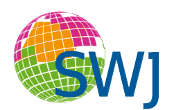Call for papers: Special Issue on Deep Learning and Knowledge Graphs
Call for papers: Special Issue on
Deep Learning and Knowledge Graphs
Over the past years there has been a rapid growth in the use and the importance of Knowledge Graphs (KGs) along with their application to many important tasks. KGs are large networks of real-world entities described in terms of their semantic types and their relationships to each other. On the other hand, Deep Learning has also become an important area of research, achieving important breakthroughs in various research fields, especially Natural Language Processing (NLP) and Image Processing. Moreover, in recent years Deep Learning methods have been combined with KGs. For example: 1) knowledge representation learning techniques aimed at embedding entities and relations in a KG into a dense and low-dimensional semantic space, 2) relation extraction techniques, aimed at extracting facts and relations from text and needed to construct KGs, 3) entity linking techniques, aimed at completing KGs, 4) using KGs as an additional prior for image recognition, etc.
In order to pursue more advanced methodologies, it has become critical that the communities related to Deep Learning, Knowledge Graphs, and NLP join their forces in order to develop more effective algorithms and applications. This special issue aims to reinforce the relationships between these communities and foster interdisciplinary research in the areas of KG, Deep Learning, and Natural Language Processing.
Topics of Interest
- New approaches for the combination of Deep Learning and Knowledge Graphs
- Methods for generating Knowledge Graph (node) embeddings
- Scalability issues
- Temporal Knowledge Graph Embeddings
- Novel approaches
- Applications of the combination of Deep Learning and Knowledge Graphs
- Recommender Systems leveraging Knowledge Graphs
- Link Prediction and completing KGs
- Ontology Learning and Matching exploiting Knowledge Graph-Based Embeddings
- Knowledge Graph-Based Sentiment Analysis
- Natural Language Understanding/Machine Reading
- Question Answering exploiting Knowledge Graphs and Deep Learning
- Entity Linking
- Trend Prediction based on Knowledge Graphs Embeddings
- Domain-Specific Knowledge Graphs (e.g., Scholarly, Biomedical, Musical)
- Applying knowledge graph embeddings to real world scenarios.
Deadline
- Submission deadline: 15th of February 2021 (extended!). Papers submitted before the deadline will be reviewed upon receipt.
Author Guidelines
Submissions shall be made through the Semantic Web journal website at http://www.semantic-web-journal.net. Prospective authors must take notice of the submission guidelines posted at http://www.semantic-web-journal.net/authors.
We welcome four main types of submissions: (i) full research papers, (ii) reports on tools and systems, (iii) application reports, and (iv) survey articles. The description of the submission types is posted at http://www.semantic-web-journal.net/authors#types. While there is no upper limit, paper length must be justified by content.
Note that you need to request an account on the website for submitting a paper. Please indicate in the cover letter that it is for the "Deep Learning and Knowledge Graphs" special issue. All manuscripts will be reviewed based on the SWJ open and transparent review policy and will be made available online during the review process.
Also note that the Semantic Web journal is open access.
Guest editors
The guest editors can be reached at deep-learning-for-knowledge-graphs@googlegroups.com .
Mehwish Alam, FIZ Karlsruhe - Leibniz Institute for Information Infrastructure, Germany
Davide Buscaldi, LIPN, Université Sorbonne Paris Nord, France
Michael Cochez, Vrije University of Amsterdam, the Netherlands
Francesco Osborne, Knowledge Media Institute, (KMi), The Open University, UK
Diego Reforgiato Recupero, University of Cagliari, Italy
Harald Sack, FIZ Karlsruhe - Leibniz Institute for Information Infrastructure, Germany
Guest Editorial Board
Danilo Dessi', FIZ-Karlsruhe, Karlsruhe Institute of Technology, Germany.
Stefan Dietze, L3S Hannover, Germany.
Mauro Dragoni, Fondazione Bruno Kessler, Italy.
Mayank Kejriwal, Information Science Institute, University of Southern California, USA.
Gerard de Melo, Rutgers University, USA.
Amedeo Napoli, LORIA, CNRS, France.
Finn Årup Nielsen, Technical University of Denmark, Denmark.
Heiko Paulheim, University of Mannheim, Germany.
Achim Rettinger, AIFB-KIT, Germany.
Petar Ristoski, IBM research, USA.
Veronika Thost, IBM Research, USA.
Volker Tresp, Siemens AG, Germany.
Lei Zhang, FIZ-Karlsruhe, Karlsruhe Institute of Technology, Germany.
- Pascal Hitzler's blog
- Log in or register to post comments
- 16524 reads
